- Home›
- Healthy Living›
- Here Are Some Herbs And Their Health Benefits
Here Are Some Herbs And Their Health Benefits
By: Kratika Maheshwari Sat, 23 Jan 2021 3:44:53

Ayurveda is an ancient Indian medicinal system. Ayurveda means the science and knowledge of life where – Ayur meaning life and Veda means science or knowledge. The ayurvedic practice is five thousand years old and works on three basic three principles or doshas (Vata, Pitta, and Kapha).
Ayurvedic treatment can holistically heal you. It not only treat your illness but also protect you. According to Ayurveda, each person has their Doshas that should be balanced to treat that person.
Ayurveda practice is based on three main books named – Charaka Samhita, the Sushruta Samhita, and the Astanga Hridaya that were written in Sanskrit over 2,000 years ago and are known as the Great Trilogy.
The ayurvedic herb is an integral part of the ayurvedic medicine system. From ancient times, we are using these herbs to treat different diseases, to promote mental clarity, boost immunity, healthy skin, hair, etc. In Ayurveda, a patient can be treated as a whole and not just a diseased part. Thousands of herbs have been used in Ayurveda to treat illnesses where active ingredients are derived from leaves, roots, flowers, bark. Herbs are potent to balance the level in mind and body.
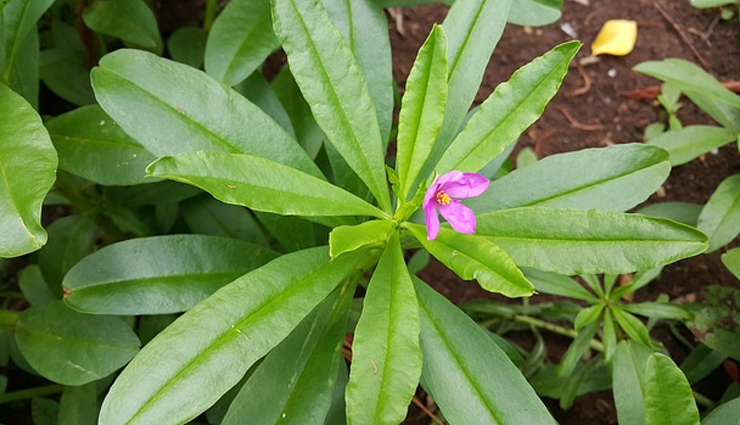
# Ashwagandha
Ashwagandha is a traditional ayurvedic medicine used for multiple uses. It is found in India, Africa, and some parts of the Mediterranean continent. Ashwagandha’s name is taken from a Sanskrit word where Ashva means horse, and Gandha means smell. As per the traditional description, it can bring the strength and stamina of a horse while nourishing the female and male reproductive and nervous systems. It is also called ‘Winter Cherry’ or ‘Indian ginseng’. Generally, Ashwagandha roots are used for preparing ayurvedic remedies. The benefits of Ashwagandha are as follows –
- Boosts immune system
- Decreases stress and calm your body
- Enhance your memory and cognition
- Improve sleep patterns
- Helps to manage weight
- Helps to maintain normal testosterone levels in males
- Increase fertility
- Improve heart health
- Helps to manage weight
- Promote thyroid health
Ashwagandha is versatile and can be consumed as a powder, a tablet, or a liquid extract form. You can also take it with or without food and at any time.
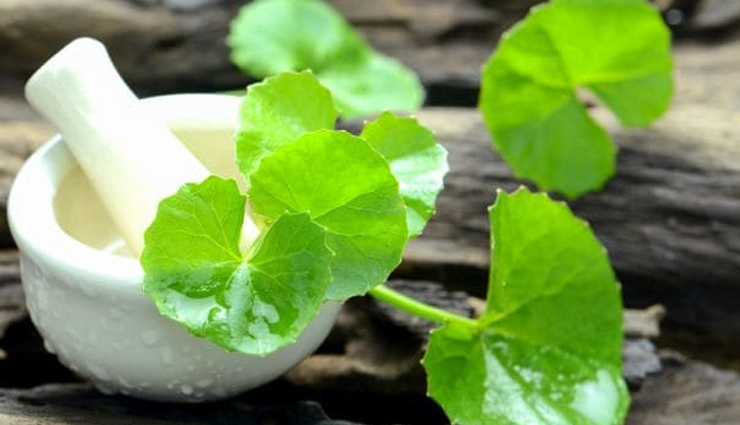
# Brahmi
Brahmi is also called a Bacopa Monnieri is a traditional ayurvedic herb that has been used specifically to treat neurological disorders. It has anti-inflammatory and antioxidant properties. The leaves of this plant are considered very pure and effective. The benefits of Brahmi are as follows –
- Works as a brain tonic
- Enhance memory, concentration, and intelligence
- Improve nervous system function
- Reduces stress and depression
- Calm your mind
- Reduce the symptoms of attention deficit hyperactivity disorder (ADHD) like hyperactivity, impulsiveness
- It is used as a great antioxidant that helps to remove cancer-producing cells
- Acts as a natural blood purifier give healthy skin and hair
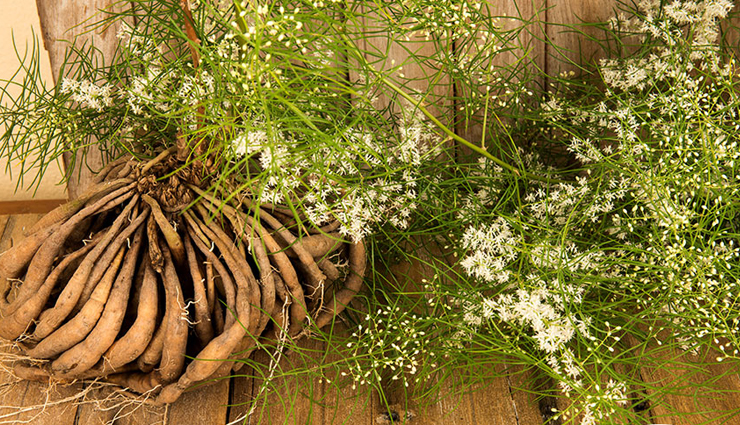
# Shatavari
Shatavari is a medicinal herb with excellent health benefits. Shatavari is also called as ‘queen of herbs’. It has antioxidant properties due to the presence of Saponins in it. It is very beneficial to boost your immunity and for the female reproductive system. Here are some benefits of Shatavari
- Enhance immunity power
- Reduces inflammations
- Improve female reproductive system activity
- Effective in alleviating respiratory symptoms
- Works excellent to relieve acidity symptoms
- Helps to cure esophagus, stomach, and intestinal ulcers
- Maintain blood sugar levels
- controls anti-aging changes of skin
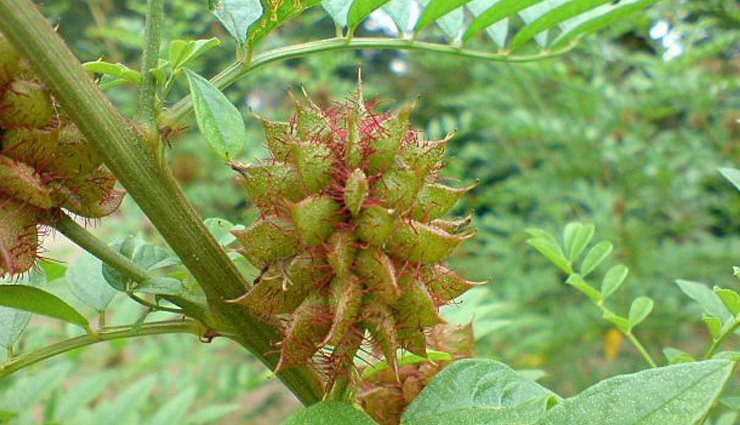
# Licorice
Licorice has been used since the old days not only in Indian but in Greek and Egyptian medicine preparations. Due to its sweet flavor, it is been used in various preparations such as herbal teas, candies, capsules, and liquid extracts. Benefits of Licorice are as follows –
- Provides relief from acidity, stomach ulcers, and food poisoning
- Treats cold and cough
- Reduces stress
- Works as an anti-inflammatory, anti-spasmodic, anti-microbial, and anti-aging
- Excellent for hair fall and to prevent dandruff
- Beneficial in prostate gland problems

# Neem
Neem is a well-known herb due to its bitter taste. The word “Neem” is derived from the Sanskrit Nimba – which means the bestower of good health. Neem has miraculous healing powers used in various disorders. It is used in almost 75% of formulations in Ayurveda. The benefits of neem are as follows –
- Neem has antiseptic, anti-microbial, and antifungal properties.
- Potent blood purifier and detoxifier
- Treat acne, eczema, and skin diseases.
- Helps to reduce fever, especially malarial fever
- Maintain oral hygiene and prevent dental caries, infections
- Neem paste is great for hair and helps to control dandruff.

# Manjistha
Manjistha is great blood and lymph purifier helps to improve and regulate your immune system. Manjistha is effective to cleanse the liver, kidneys, and skin. The benefits of Manjistha are as follows –
- Boost your immunity
- Helps to improve complexion and clears acne
- Memory enhancer and increase learning ability
- Treats allergic conditions

# Amala
Amala is a powerful rejuvenating herb in Ayurveda. It mainly uses to boost the immune system. It has great antioxidant properties. The benefits of amala are as follows –
- Enhance body immunity
- Strengthen heart muscles
- Great for hair, skin, eyes, and nails
- Reduces high blood sugar levels
- Relieve from acidity
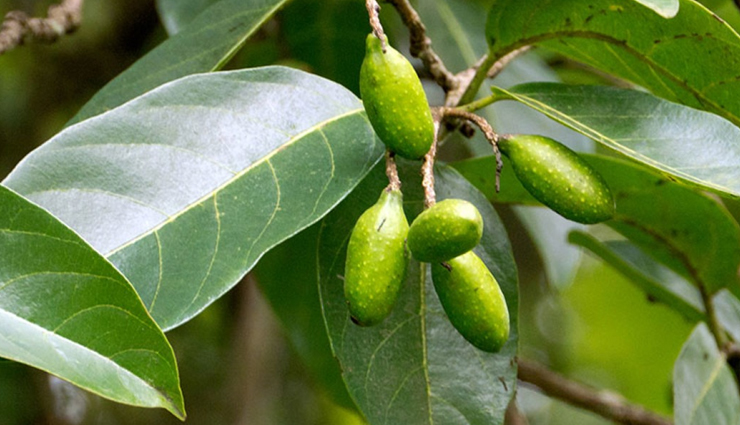
# Haritaki
Haritaki is known as a ‘king of herbs’ in the ayurvedic system of medicine. It is useful to strengthen energy, awareness, and intelligence. The benefits of Haritaki are as follows –
- Strengthens the vital functions of the body, such as strong digestion, nutrient absorption, elimination, etc.
- Reduce cholesterol levels
- Prevent lung infections
- Great for eyes





